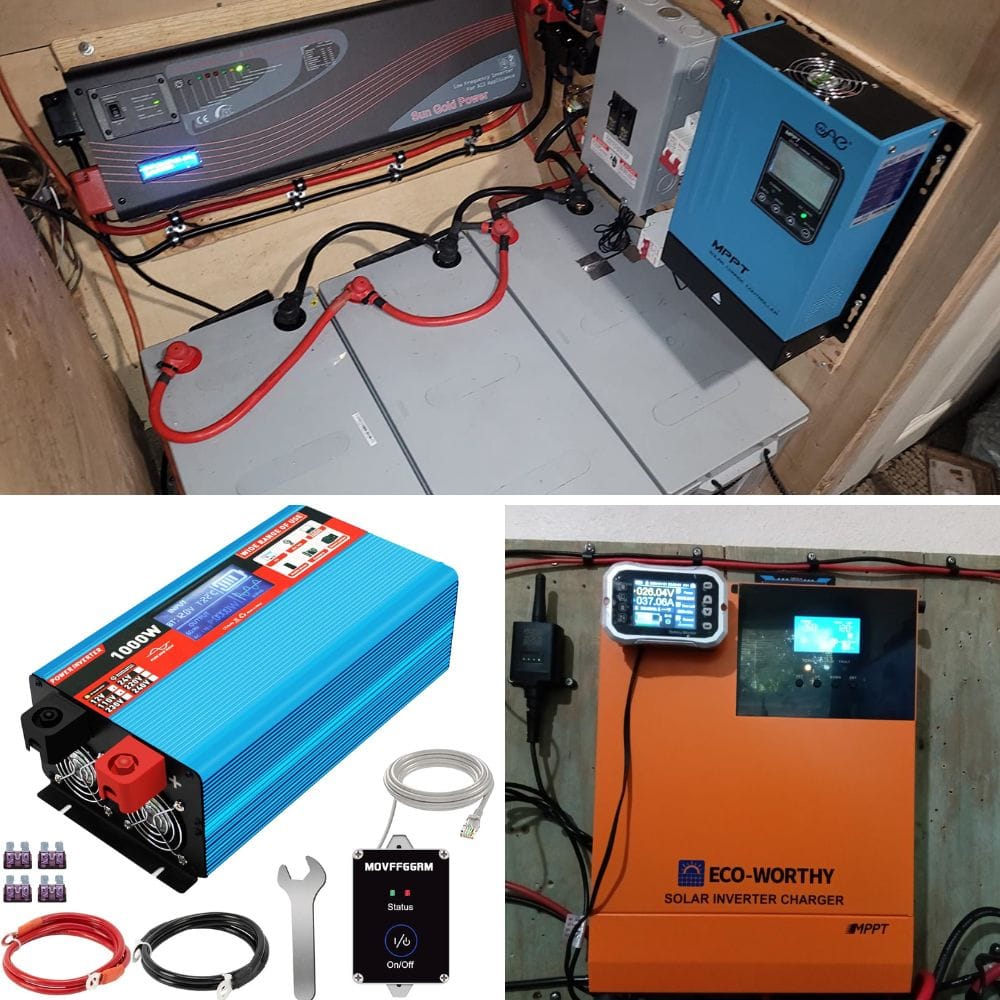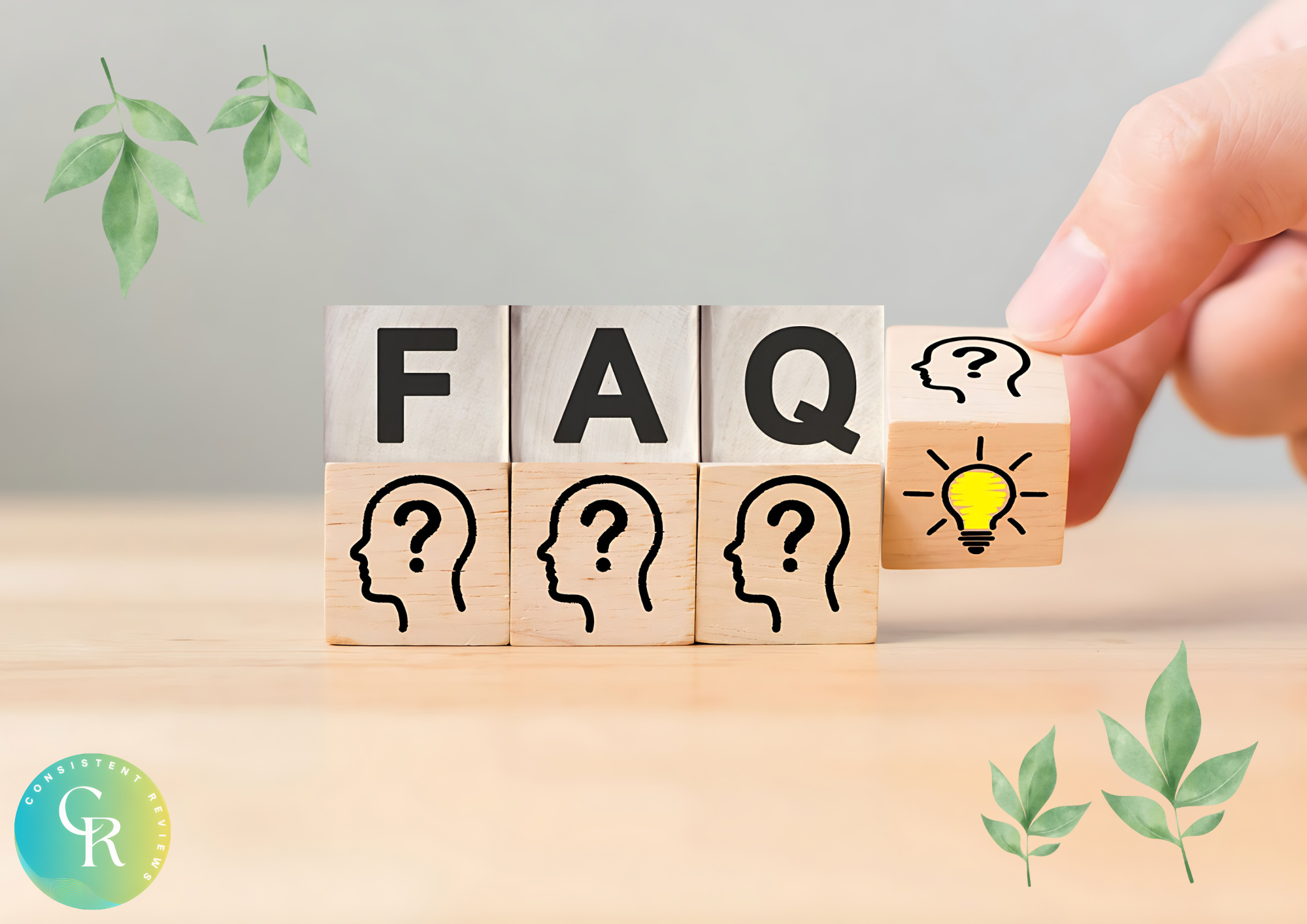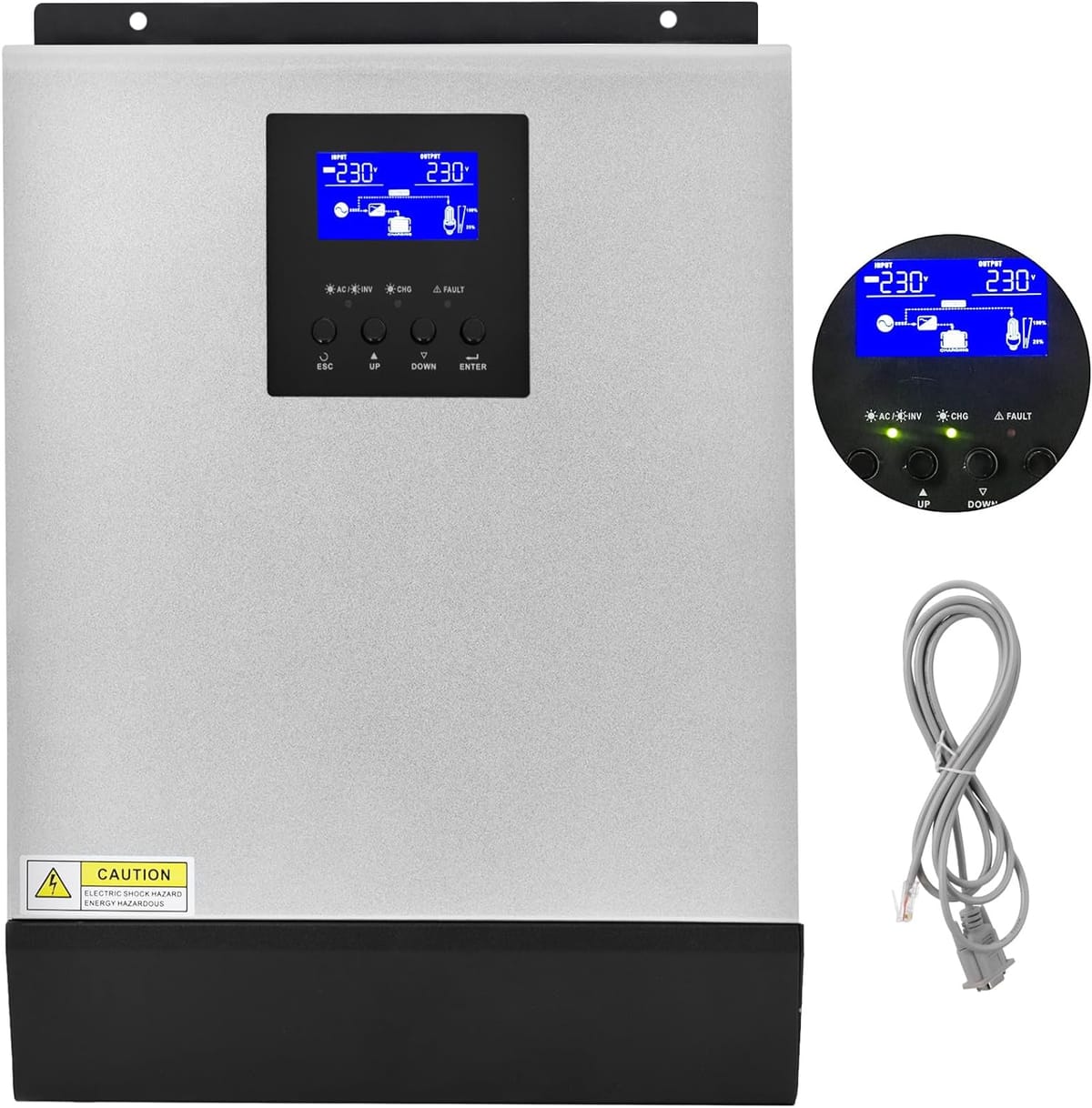Key Takeaways:
- Hybrid inverters can handle both AC and DC power, making them versatile for various solar energy systems.
- They are essential for managing excess energy and providing backup power during outages.
- Understanding the differences between AC and DC hybrid inverters can help optimize your solar energy system.
Introduction to Hybrid Inverters
Hybrid inverters are a crucial component in modern solar energy systems. Hybrid solar systems offer significant advantages, including efficiency, versatility, and the ability to provide backup power. They bridge the gap between traditional solar inverter and battery storage systems, allowing for more efficient energy management. But a common question arises: is a hybrid inverter AC or DC? This article delves into the intricacies of hybrid inverters, their functionalities, and their applications in solar energy systems.
What is a Hybrid Inverter?
A hybrid solar inverter is a device that combines the functionalities of a solar inverter and a battery inverter. It can convert DC electricity generated by solar panels into AC electricity for household use, provide backup power during outages, and store excess energy in batteries for later use. This dual capability makes hybrid solar inverters highly versatile, efficient, and environmentally friendly.
Hybrid solar inverters are designed to work seamlessly with both the electrical grid and off-grid systems. They can optimize energy usage by storing excess power generated during peak sunlight hours and effectively manage power from various sources, enhancing energy stability and utilization in renewable energy systems. This makes them an ideal choice for homeowners looking to maximize their solar energy investment.
AC vs. DC: The Basics
AC (Alternating Current) and DC (Direct Current) are two types of electrical currents used in various applications. AC is the standard form of electricity supplied by the electrical grid and used in most household appliances. DC, on the other hand, is the type of electricity generated by solar panels and stored in batteries.
Understanding the differences between AC and DC is crucial for optimizing your solar energy system. Hybrid inverters play a vital role in converting DC power from solar panels into usable AC power for household use and vice versa, ensuring efficient energy management.
How Hybrid Inverters Work
Hybrid inverters operate by converting DC electricity generated by solar panels into AC electricity for household use, effectively managing the power supply solar panels produce. They also manage the flow of excess energy, directing it to battery storage systems for later use. This dual functionality allows for efficient energy management and backup power during outages.
The inverter continuously monitors energy usage and adjusts the flow of power accordingly. When solar power generation exceeds household consumption, the excess energy is stored in batteries. During periods of low sunlight or power outages, the stored energy is converted back into AC power for household use.
Types of Hybrid Inverters
There are two main types of hybrid inverters: AC-coupled and DC-coupled systems. In a solar system, inverters play a crucial role by converting the power generated by solar panels and ensuring efficient energy distribution. AC-coupled systems are designed to work with existing solar power systems and can be easily integrated into an existing setup. DC-coupled systems, on the other hand, are more efficient and are typically used in new installations.
AC-coupled systems are easier to install and can be retrofitted into existing solar power systems. They work by converting DC power from solar panels into AC power, which is then used to charge batteries. DC-coupled systems, however, are more efficient as they convert DC power directly into usable DC power for battery storage, reducing energy loss.

Benefits of Hybrid Inverters
Hybrid inverters offer several benefits, including improved energy efficiency, backup power during outages, and better energy management. They allow homeowners to store excess energy generated during peak sunlight hours and use it during periods of low sunlight or power outages.
These inverters also help reduce reliance on the electrical grid, leading to lower energy bills and a smaller carbon footprint. By optimizing energy usage and providing backup power, hybrid inverters make solar energy systems more reliable and efficient.
Hybrid Inverters and Battery Storage
Battery storage systems are an essential component of hybrid inverters. They store excess energy generated by solar panels for later use, ensuring a continuous power supply even during periods of low sunlight or power outages. This makes hybrid inverters an ideal choice for homeowners looking to maximize their solar energy investment.
Battery storage systems come in various sizes and capacities, allowing homeowners to choose the best option for their energy needs. By storing excess energy, these systems help reduce reliance on the electrical grid and provide backup power during outages.
Solar Power Monitoring Software
Solar power monitoring software is an essential tool for managing hybrid inverters and battery storage systems. It provides real-time data on energy generation, consumption, and storage, allowing homeowners to optimize their energy usage and maximize their solar energy investment.
This software also helps identify potential issues with the solar power system, ensuring timely maintenance and repairs. By providing detailed insights into energy usage and generation, solar power monitoring software helps homeowners make informed decisions about their energy consumption.
Hybrid Inverters and Power Outages
One of the major advantages of hybrid inverters is their capability to offer backup power in case of outages. By storing excess energy in batteries, these inverters ensure a continuous power supply even when the electrical grid is down. This makes them an ideal choice for homeowners looking to enhance the reliability of their solar energy system.
During a power outage, the hybrid inverter automatically switches to battery power, providing uninterrupted electricity to essential appliances and devices. This ensures that homeowners can continue their daily activities without disruption, even during extended outages.

Energy Management with Hybrid Inverters
Hybrid inverters play a crucial role in energy management by optimizing the flow of power between solar panels, batteries, and the electrical grid. They continuously monitor energy usage and adjust the flow of power accordingly, ensuring efficient energy management and reduced reliance on the electrical grid.
By storing excess energy generated during peak sunlight hours, hybrid inverters help reduce energy bills and provide backup power during outages. This makes them an ideal choice for homeowners looking to maximize their solar energy investment and enhance the reliability of their energy supply.
Hybrid Inverters and Renewable Energy
Hybrid inverters are an essential component of renewable energy systems, allowing homeowners to harness the power of the sun and store excess energy for later use. By optimizing energy usage and providing backup power during outages, these inverters help reduce reliance on the electrical grid and lower energy bills.
Renewable energy systems, such as solar power, are becoming increasingly popular as homeowners look for ways to reduce their carbon footprint and save on energy costs. Hybrid inverters play a crucial role in these systems, ensuring efficient energy management and reliable power supply.
Hybrid Inverters and Solar Power Generation
Hybrid inverters are designed to work seamlessly with solar power systems, converting DC electricity generated by solar panels into AC electricity for household use. They also manage the flow of excess energy, directing it to battery storage systems for later use.
By optimizing energy usage and providing backup power during outages, hybrid inverters help maximize the efficiency and reliability of solar power systems. This makes them an ideal choice for homeowners looking to enhance their solar energy investment.
Hybrid Inverters and Battery Backup
Battery backup is a key feature of hybrid inverters, allowing homeowners to store excess energy generated by solar panels for later use. This ensures a continuous power supply even during periods of low sunlight or power outages, making hybrid inverters an ideal choice for enhancing the reliability of solar energy systems.
Battery backup systems come in various sizes and capacities, allowing homeowners to choose the best option for their energy needs. By storing excess energy, these systems help reduce reliance on the electrical grid and provide backup power during outages.

Hybrid Inverters and Grid Connection
Hybrid inverters are designed to work seamlessly with the electrical grid, allowing homeowners to optimize their energy usage and reduce reliance on grid power. By storing excess energy generated by solar panels in batteries, these inverters help lower energy bills and provide backup power during outages.
Grid connection is an essential feature of hybrid inverters, ensuring a continuous power supply even when solar power generation is low. This makes them an ideal choice for homeowners looking to enhance the reliability of their solar energy system.
Hybrid Inverters and Solar Battery Storage
Solar battery storage is an essential component of hybrid inverters, allowing homeowners to store excess energy generated by solar panels for later use. This ensures a continuous power supply even during periods of low sunlight or power outages, making hybrid inverters an ideal choice for enhancing the reliability of solar energy systems.
Solar battery storage systems come in various sizes and capacities, allowing homeowners to choose the best option for their energy needs. By storing excess energy, these systems help reduce reliance on the electrical grid and provide backup power during outages.
Hybrid Inverters and Energy Usage
Hybrid inverters play a crucial role in optimizing energy usage by managing the flow of power between solar panels, batteries, and the electrical grid. They continuously monitor energy usage and adjust the flow of power accordingly, ensuring efficient energy management and reduced reliance on the electrical grid.
By storing excess energy generated during peak sunlight hours, hybrid inverters help reduce energy bills and provide backup power during outages. This makes them an ideal choice for homeowners looking to maximize their solar energy investment and enhance the reliability of their energy supply.

Hybrid Inverters and Maximum Power Point Trackers
Maximum Power Point Trackers (MPPT) is an essential feature of hybrid inverters, ensuring that solar panels operate at their maximum efficiency. By continuously monitoring the voltage and current of solar panels, MPPTs optimize the power output and ensure efficient energy generation.
Hybrid inverters with MPPTs help maximize the efficiency of solar power systems, ensuring that homeowners get the most out of their solar energy investment. This makes them an ideal choice for enhancing the reliability and efficiency of solar energy systems.
Hybrid Inverters and Traditional Solar Inverters
Traditional solar inverters are designed to convert DC electricity generated by solar panels into AC electricity for household use. Hybrid inverters, on the other hand, offer additional functionalities such as battery storage and backup power, making them a more versatile and efficient option.
By combining the functionalities of traditional solar inverters and battery inverters, hybrid inverters provide a more comprehensive solution for managing solar energy systems. This makes them an ideal choice for homeowners looking to enhance the reliability and efficiency of their solar energy investment.
Hybrid Inverters and Usable DC Power
Hybrid inverters are designed to convert DC electricity generated by solar panels into usable AC power for household use. They also manage the flow of excess energy, directing it to battery storage systems for later use. This dual functionality ensures efficient energy management and backup power during outages.
By optimizing energy usage and providing backup power, hybrid inverters help maximize the efficiency and reliability of solar power systems. This makes them an ideal choice for homeowners looking to enhance their solar energy investment.

Hybrid Inverters and DC to AC Conversion
DC to AC conversion is a key function of hybrid inverters, allowing them to convert DC electricity generated by solar panels into AC electricity for household use. This ensures that homeowners can use the power generated by their solar panels for everyday activities.
Hybrid inverters also manage the flow of excess energy, directing it to battery storage systems for later use. This dual functionality ensures efficient energy management and backup power during outages, making them an ideal choice for enhancing the reliability of solar energy systems.
Hybrid Inverters and Direct Current DC
Direct Current (DC) is the type of electricity generated by solar panels and stored in batteries. Hybrid inverters are designed to convert DC electricity into AC electricity for household use, ensuring efficient energy management and backup power during outages.
By optimizing energy usage and providing backup power, hybrid inverters help maximize the efficiency and reliability of solar power systems. This makes them an ideal choice for homeowners looking to enhance their solar energy investment.
Hybrid Inverters and Pull AC Power
Hybrid inverters are designed to pull AC power from the electrical grid when solar power generation is low or during periods of high energy demand. This ensures a continuous power supply and reduces reliance on the electrical grid.
By storing excess energy generated during peak sunlight hours, hybrid inverters help reduce energy bills and provide backup power during outages. This makes them an ideal choice for homeowners looking to maximize their solar energy investment and enhance the reliability of their energy supply.
Hybrid Inverters and Utility Grid
Hybrid inverters are designed to work seamlessly with the utility grid, allowing homeowners to optimize their energy usage and reduce reliance on grid power. By storing excess energy generated by solar panels in batteries, these inverters help lower energy bills and provide backup power during outages.
Utility grid connection is an essential feature of hybrid inverters, ensuring a continuous power supply even when solar power generation is low. This makes them an ideal choice for homeowners looking to enhance the reliability of their solar energy system.

Hybrid Inverters and Energy Management Systems
Energy management systems are an essential component of hybrid inverters, allowing homeowners to optimize their energy usage and reduce reliance on the electrical grid. These systems continuously monitor energy usage and adjust the flow of power accordingly, ensuring efficient energy management.
By storing excess energy generated during peak sunlight hours, hybrid inverters help reduce energy bills and provide backup power during outages. This makes them an ideal choice for homeowners looking to maximize their solar energy investment and enhance the reliability of their energy supply.
Hybrid Inverters and Convert DC Power
Hybrid inverters are designed to convert DC electricity generated by solar panels into AC electricity for household use. They also manage the flow of excess energy, directing it to battery storage systems for later use. This dual functionality ensures efficient energy management and backup power during outages.
By optimizing energy usage and providing backup power, hybrid inverters help maximize the efficiency and reliability of solar power systems. This makes them an ideal choice for homeowners looking to enhance their solar energy investment.
Hybrid Inverters and Alternating Current AC
Alternating Current (AC) is the standard form of electricity supplied by the electrical grid and used in most household appliances. Hybrid inverters are designed to convert DC electricity generated by solar panels into AC electricity for household use, ensuring efficient energy management and backup power during outages.
By optimizing energy usage and providing backup power, hybrid inverters help maximize the efficiency and reliability of solar power systems. This makes them an ideal choice for homeowners looking to enhance their solar energy investment.


What is the main difference between AC and DC hybrid inverters?
AC hybrid inverters are designed to work with existing solar power systems and can be easily integrated into an existing setup. DC hybrid inverters, on the other hand, are more efficient and are typically used in new installations.
How do hybrid inverters provide backup power during outages?
Hybrid inverters store excess energy generated by solar panels in batteries. During a power outage, the inverter automatically switches to battery power, providing uninterrupted electricity to essential appliances and devices.
Are hybrid inverters more expensive than traditional solar inverters?
Yes, hybrid inverters can be more expensive than traditional solar inverters due to their additional functionalities such as battery storage and backup power. However, their versatility and efficiency make them a worthwhile investment for homeowners looking to maximize their solar energy investment.

Hybrid solar inverters are a versatile and efficient solution for managing solar energy systems, offering advanced functionality and significant advantages over traditional inverters. They combine the functionalities of traditional solar inverters and battery inverters, allowing homeowners to optimize energy usage and provide backup power during outages. By storing excess energy generated during peak sunlight hours, hybrid inverters help reduce energy bills and enhance the reliability of solar energy systems.











